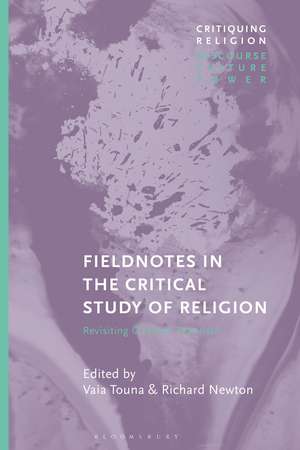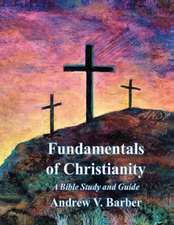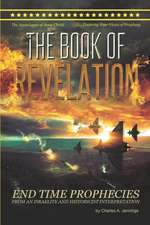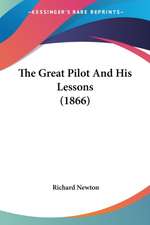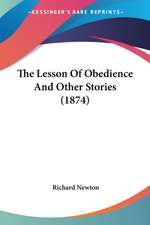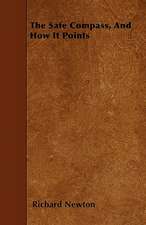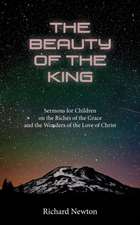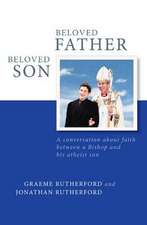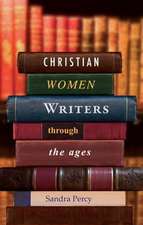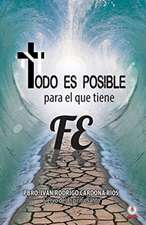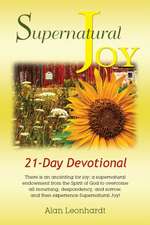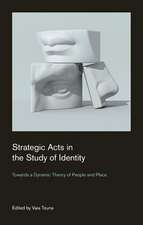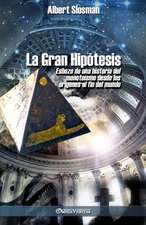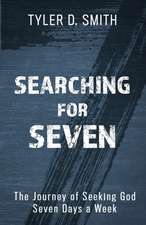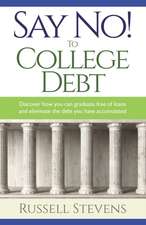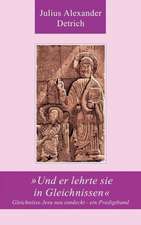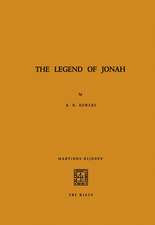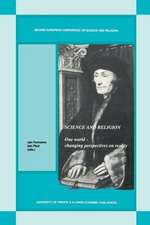Fieldnotes in the Critical Study of Religion: Revisiting Classical Theorists: Critiquing Religion: Discourse, Culture, Power
Editat de Vaia Touna, Richard Newtonen Limba Engleză Paperback – 17 mai 2023
| Toate formatele și edițiile | Preț | Express |
|---|---|---|
| Paperback (1) | 149.02 lei 3-5 săpt. | +30.18 lei 7-13 zile |
| Bloomsbury Publishing – 17 mai 2023 | 149.02 lei 3-5 săpt. | +30.18 lei 7-13 zile |
| Hardback (1) | 406.99 lei 6-8 săpt. | |
| Bloomsbury Publishing – 17 mai 2023 | 406.99 lei 6-8 săpt. |
Preț: 149.02 lei
Preț vechi: 160.51 lei
-7% Nou
Puncte Express: 224
Preț estimativ în valută:
28.51€ • 29.77$ • 23.60£
28.51€ • 29.77$ • 23.60£
Carte disponibilă
Livrare economică 15-29 martie
Livrare express 01-07 martie pentru 40.17 lei
Preluare comenzi: 021 569.72.76
Specificații
ISBN-13: 9781350251656
ISBN-10: 1350251658
Pagini: 224
Dimensiuni: 156 x 234 x 25 mm
Greutate: 0.45 kg
Editura: Bloomsbury Publishing
Colecția Bloomsbury Academic
Seria Critiquing Religion: Discourse, Culture, Power
Locul publicării:London, United Kingdom
ISBN-10: 1350251658
Pagini: 224
Dimensiuni: 156 x 234 x 25 mm
Greutate: 0.45 kg
Editura: Bloomsbury Publishing
Colecția Bloomsbury Academic
Seria Critiquing Religion: Discourse, Culture, Power
Locul publicării:London, United Kingdom
Caracteristici
Ideal for scholars who are in the tight spot of wanting to do the kind of work exemplified by the Critiquing Religion series but are committed (for one reason or another) to teaching the classics
Notă biografică
Richard Newton is Associate Professor of Religious Studies at the University of Alabama, USA. Vaia Touna is Associate Professor of Religious Studies at the University of Alabama, USA.
Cuprins
List of ContributorsPreface: Taking Notes in the Field of Religious Studies: Critical Methods, Vaia Touna (The University of Alabama, USA)Introduction: Revisiting the Past., Again, Aaron W. Hughes and Russell T. McCutcheon (The University of Alabama, USA)1. Friedrich Max Muller, Brent Nongbri (MF Norwegian School of Theology, Religion and Society, Norway)2. William James, Emily Clark (Gonzaga University, USA)3. Edward B. Tylor, Mitsutoshi Horii (Shumei University, Japan)4. Joseph Kitagawa, Christopher M. Jones(Washburn University, USA)5. James Frazer, Krista Dalton(Kenyon College in Gambier, USA)6. Wilfred Cantwell Smith, Edith Szanto (The University of Alabama, USA)7. Sigmund Freud, Robyn Walsh (University of Miami, USA)8. Gerardus van der Leeuw, Tenzan Eaghll (Mahidol University, Thailand)9. Rudolf Otto, Martha Smith Roberts (Fullerton College, USA)10. Carl Jung, Lauren Griffin11. Bronislaw Malinowski, Brett Esaki(University of Arizona, USA)12. Mircea Eliade, Joseph Winters (Duke University, USA)13. Max Weber, Andrew Tobolowsky (College of William and Mary, USA)Afterword: Revisiting Classics and Plotting Futures for the Field of Religious Studies, Richard Newton (The University of Alabama, USA)NotesBibliographyIndex
Recenzii
This book represents the field's historical richness and curiosities like no other. 13 modern scholars of religion are in conversation with a partner from the field's past; the engagements are sometimes contrary, often celebratory, and always insightful. The volume is a model of how to read the founders and ancestors of the critical study of religion.
This is a much-needed book. Those of us who teach theory and method courses face an annual dilemma: should we teach the classics in the field, and, if so, how best to do so? This book steers us ably through the shoals by offering approaches to these earlier works that both acknowledge their contribution but also dismantle their problematic, often colonialist, assumptions and approaches.
We stand not on the shoulders of giants, but of people who asked many of the same questions that we do today. Fieldnotes in the Critical Study of Religion is a constructive reassessment of our scholarly forebears that shows us that even if their answers no longer satisfy, the issues they addressed are still topical.
This is a much-needed book. Those of us who teach theory and method courses face an annual dilemma: should we teach the classics in the field, and, if so, how best to do so? This book steers us ably through the shoals by offering approaches to these earlier works that both acknowledge their contribution but also dismantle their problematic, often colonialist, assumptions and approaches.
We stand not on the shoulders of giants, but of people who asked many of the same questions that we do today. Fieldnotes in the Critical Study of Religion is a constructive reassessment of our scholarly forebears that shows us that even if their answers no longer satisfy, the issues they addressed are still topical.
